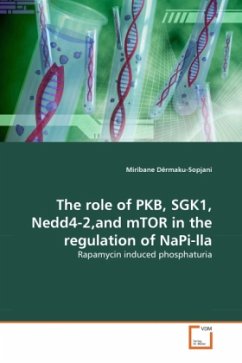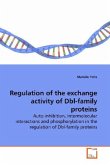Phosphate homeostasis is of critical importance for a wide variety of functions and is a function of intestinal absorption and renal elimination. Renal tubular phosphate absorption is accomplished by the Na+, phosphate cotransporter NaPi IIa. The mammalian target of rapamycin mTOR is known to stimulate a variety of transport mechanisms. The present study thus explored the impact of Akt/PKB, SGK1, Nedd4-2 and mTOR on the regulation of NaPi-IIa. For this purpose the NaPi-IIa was expressed in Xenopus oocytes with or without PKB/Akt, SGK1, Nedd4-2 and mTOR and Na+, phosphate transport was determined by dual electrode voltage clamp. In a second series of experiments, the effect of rapamycin was analysed in mice. The in vivo administration of rapamycin for 3 days resulted in phosphaturia in mice despite a tendency of plasma phosphate concentration to decrease. The present observations underlie, Akt2/PKBß, SGK1, and Nedd4-2 play a role in the acute regulation of NaPi-IIa and thus contribute to the maintenance of phosphate balance and adequate mineralization of bone. In addition mTOR contributes to the regulation of renal phosphate transport and rapamycin thus influences phosphate balance.
Bitte wählen Sie Ihr Anliegen aus.
Rechnungen
Retourenschein anfordern
Bestellstatus
Storno








